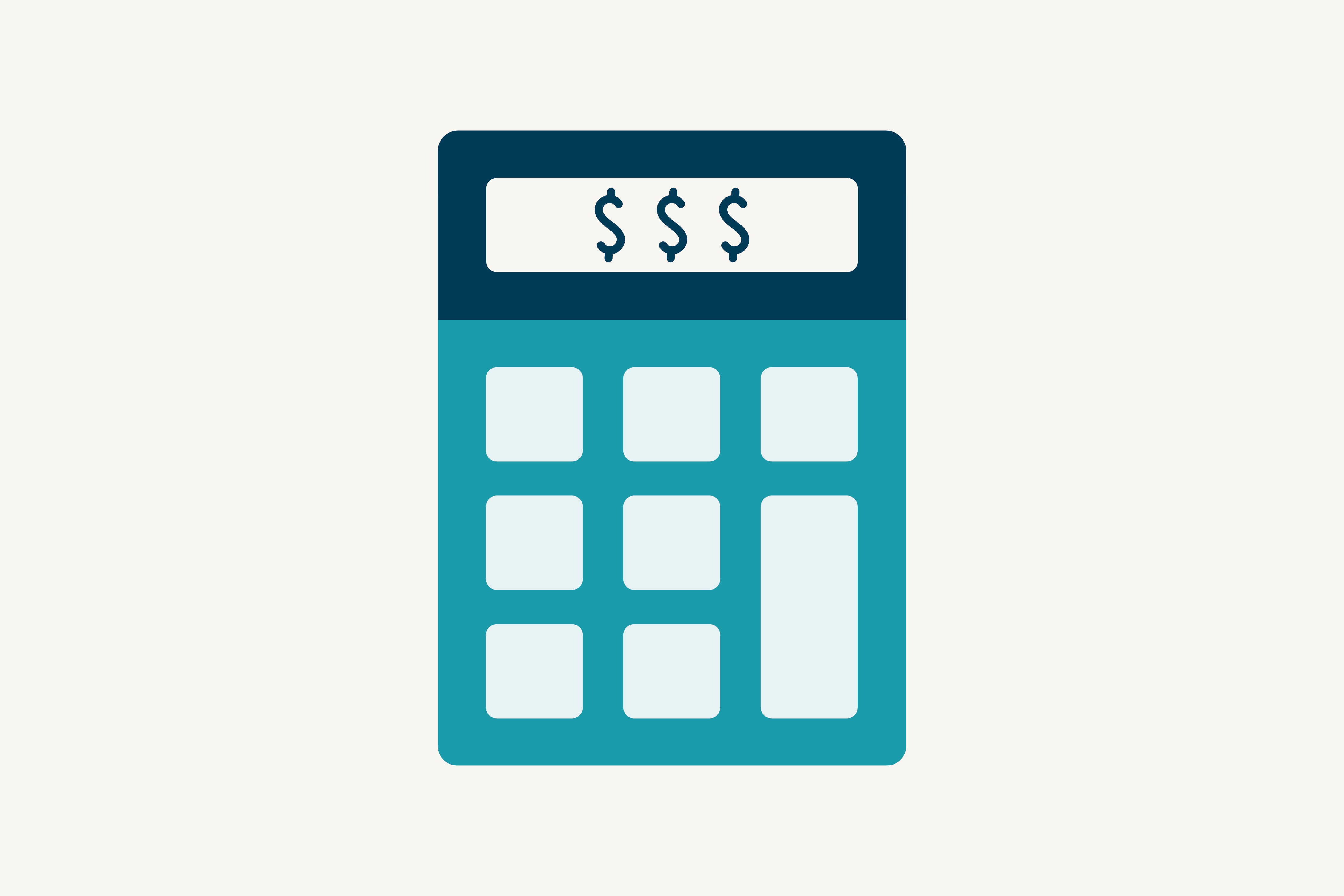- Expert advice/
- Wedding planning 101/
- Creating a budget/
- How to Set Your Wedding Budget Step by Step
- Creating a budget
How to Set Your Wedding Budget Step by Step
While it may not be the most exciting item on your to-do list, setting your wedding budget is essential. We’ll break down the typical expenses, guide you through the entire process from start to finish, and tell you where you can save money.
Last updated January 22, 2026

When you’re enjoying being newly engaged, the last thing you want to think about is your wedding budget. In fact, almost half of all Zola couples report that setting and sticking to a budget was the most stressful part of wedding planning.
We can’t promise you a completely stress-free experience leading up to your wedding day. However, we can help you avoid financial headaches as much as possible by tackling one of the most confusing questions for many couples: how to set your wedding budget. And Zola has answers.
What is a good budget for a wedding?
The average wedding budget is $30,000. If that seems high, don’t panic. There are hundreds of ways to whittle that cost down to size. Plus, some people who have micro-weddings spend as little as $500 on their wedding and still enjoy a picture-perfect day. The cost of your wedding day is really up to you.
What is a realistic wedding budget?
Determining how much to spend on each part of your wedding costs isn’t exactly simple, as wedding costs vary by location and time of year. That said, there are a few straightforward steps you can take to help you get.
Many couples ask, "Is $10,000 a good wedding budget?" The answer is: It depends. If you're having a backyard wedding with simple florals and catering, that amount is feasible. However, if you want to get married at an upscale hotel or winery, some wedding venues charge $10,000 just for rental.
A realistic wedding budget is one that works for you and your partner, the size of your guest list, and the type of big day you envision.
Expert Advice: Easily set and keep track of your wedding budget from anywhere: try Zola’s free budget tool with payment reminders and tips on how much to spend.

Wedding budget breakdown and cost-saving tips
It’s important to note that wedding expenses and wedding budgets are extremely individual—it’s part of what makes researching all things ‘wedding budget’ so frustrating. Here’s how most couples divide up their wedding budget breakdown. (Note that this totals over 100%, as not everyone will include every category in their wedding expenses).
Wedding venue: 17%
What is the biggest expense in a wedding? Typically the venue, but you can save money on your venue a few different ways:
- Choose off-peak days and times. Saturday is the most popular day of the week for weddings and therefore almost always the most expensive. Consider a Friday evening or Sunday or, if it won’t wreck plans for your nearest and dearest, another weekday.
- Consider less popular seasons. This depends on where in the world you’re planning on tying the knot. Generally, winter months are more affordable than summer months.
- Look for all-inclusive packages. Particularly if you’re having a destination wedding, some wedding venues will offer all-inclusive packages. Generally, this includes food and drink packages which can help save costs on a big expense.
Find the perfect wedding venue on Zola’s marketplace.
Catering: 14%
The easiest avenue to saving money on your catering is to opt for a buffet rather than a sit-down meal. You can also look into a morning or afternoon wedding, as brunch, breakfast, or lunch packages tend to be cheaper (and less alcohol-focused!) than late afternoon or evening weddings. Your guest list size will also be a factor. You’ll need more food for a 100-person wedding versus one with only 20.
Search for a caterer that fits your wedding budget on Zola.
Photography: 9%
We’ll be honest: if there’s one area you shouldn’t skimp on when wedding planning, it’s your photography. After all, there’s nothing more crushing than looking back at photos from your special day that aren’t up to scratch. However, if you’re looking to cut costs, see if anyone in your personal network can offer a reduced photography fee as a wedding present to you and your partner.
Find professional wedding photographers on Zola.
Videography: 8%
Not every couple includes videography in their wedding planning budget. If you’re trying to cut costs, leave this one out altogether. Or, see if you can find a student or amateur videographer (as long as you’ve got photography from a pro!)
Seach your area for qualified videographers on Zola.
Flowers: 13%
You’ll need to be strategic if you’re hoping to restrict your wedding budget with your flowers. A few of the best ways include choosing seasonal blooms, bulking out your bouquets with greenery and foliage, choosing single-bloom bouquets, and looking for local or wholesale florists. You can also just opt for artificial flowers if you’re on a tight wedding budget.
Find florists within your budget on our marketplace.

Entertainment: 3-8%
Choose a band or DJ rather than both. Or, to cut costs even more, ask someone musically-minded in your network to put together a wedding soundtrack that you can play yourself. If you know you want some kind of live entertainment, limit the hours they’ll play, book far in advance, and consider local artists who won’t have to charge transport fees.
Choose a band or a DJ from Zola’s list of vendors.
Hair and makeup: 1-2%
One of the best ways to save money on your hair and makeup? Do them yourself or enlist a friend’s help. If you’re looking for pro support, look into beauty schools (students are often super talented and have a great range of tools) or look for mobile stylists. When it comes to the actual work, choose simple styles rather than overly elaborate designs.
Find hair and makeup stylists within your budget on Zola.
Cake and/or dessert: 2%
For starters, opt for something fun like a donut wall or dessert bar rather than a sit-down dessert. Cakes with fewer layers tend to be less expensive than those with multiple tiers. Buttercream is cheaper than fondant, and common flavors are usually cheaper and more accessible than unique ingredients. The “naked cake” trend is another popular way to save money here.
Search for cake and dessert bakers here.
Officiant: 1%
If you have a close friend or family member who's comfortable speaking in public, you could ask them to officiate your wedding. In many places, they can become ordained online for free or at low cost, although you'll want to check local and state laws first.
Some couples choose to have a simple civil ceremony at the courthouse or city hall. The fees for these services are usually a fair bit lower than hiring a separate officiant.
Stationery: 2-5%
The easiest way to save money on your wedding stationery (save the dates, wedding invitations, thank you cards) is to go digital, and Zola has several digital wedding stationery options. If that’s not to your taste, opt for standard-size envelopes, print in bulk, design the stationery yourself (check out our popular DIY wedding invites), and use simple designs that don’t require fancy embellishments.

Wedding attire: 8-10%
Don’t feel like you have to spend thousands on a wedding outfit for your special day. David's Bridal, Lulus, ASOS, and Azazie all offer great options at lower prices. You can also consider renting your wedding dress from brands like Rent the Runway.
When it comes to accessories, skip the bridal stores and head straight to your favorite fashion brands. Look for white (or your chosen color) accessories without the wedding mark-up.
Wedding planner: 8%
A wedding planner is totally optional. But if you’re prioritizing one in your wedding budget, consider a “day of” or a "month of” planner rather than full-service wedding planning. We’ve got you covered with everything you need to know when it comes to choosing a wedding planner in this article.
Rentals: 5%
You’ve already ticked the budget-friendly box by renting rather than buying certain elements of your wedding. There are rental options for pretty much anything you might need for your wedding besides edible items. From vintage tableware and lounge seating to attire and silk florals, you can rent just about anything nowadays.
Transportation: 2%
While no one expects you to hop on the bus to your wedding venue, there are still a few easy ways you can cut costs. Instead of renting multiple vehicles, consider using a single, larger vehicle for the bridal party or immediate family.
Or, if you’ve got friends or family members with stylish cars, ask if you can borrow (or rent) their vehicle for your wedding day. If you have a large group to transport from A to B (like the ceremony venue to the reception), it's worth looking into shuttles rather than paying for individual cars. Check out our article on wedding transportation, for more details.
Things to consider when setting your wedding budget
Now you’re equipped with everything you need to know regarding saving money on your wedding, cost by cost. But don’t forget the admin side of things, too.
1. Determine who's contributing
Figure out who pays for the wedding and what each person or couple contributes. Many couples pay for the wedding themselves, while some couples’ families cover all or some of the expenses. See our guide on who pays for the wedding for a full breakdown of the best ways to broach the subject of asking for wedding budget contributions.
2. Finalize your numbers
Once you know who is chipping in and how much they’ll be adding to the budget, it’s time to finalize your totals.
To determine your total wedding budget, add together how much each person is contributing. It sounds simple, but there are a few mistakes that some couples make during this wedding budget breakdown stage:
- Assuming that family and/or friends can or will contribute without discussing it with them first.
- Factoring in lines of credit, such as credit cards or loans, rather than creating a budget based on readily available funds like cash, savings, and income.
Pro Tip: Never acquire more wedding debt than you can repay within a few months.

3. Do your research
After you have finalized your totals, we recommend researching typical wedding costs in your wedding location to figure out how much you can expect to spend on wedding vendors specific to your area.
Remember, beautiful weddings are planned on budgets of all sizes every year, so don’t get discouraged if prices are more than you initially expected.
There is always room to negotiate.
4. Prioritize your spending
Your research should give you a sense of what to expect and will help you set your priorities for your wedding. Sit down with your partner to discuss your visions for the day and what vendors and details are most important to you both.
For example, if a packed dance floor is one of your goals, consider setting aside a larger portion of your budget for a great live band or DJ. Keep your vision in mind as you plan, and use it as a guide when deciding when to splurge and when to save.
To help set your priorities, here’s a great exercise for you and your partner to do:
Answer the questions below individually at first, then come together to discuss why you each chose your answers and to reach an agreement on your mutual priorities.
- What is my ideal engagement length (1 year, 6 months, etc.)?
- What is my ideal number of guests?
- What is my ideal wedding location (city, state, country)?
- What is my ideal wedding season?
- What is my ideal wedding ceremony and/or wedding reception environment (indoor, beach, church, etc.)?
- What is my ideal wedding dress code (black tie, casual, cocktail, etc.)?
- What is my ideal wedding budget?
- What is my ideal wedding vibe (laid-back, formal, intimate, etc.)?
- What is my ideal wedding theme or style (glam, boho, rustic, etc.)?
- What are three things I want my wedding to include (lots of dancing, great food, beautiful invitations, etc.)?
- What vendors do I not want to go without (videographer, wedding planner, etc.)?
- How do I want my guests to feel at the wedding (entertained, loved, excited, etc.)?
- What details do I want to prioritize for the biggest portions of the wedding budget (wedding flowers such as bouquets and centerpieces, reception venue, etc.)?
- What details, if any, am I interested in DIYing?
- Who would be my ideal pick to officiate the wedding?
- What do I want to do for wedding favors and gifts for the wedding party?
- Would I prefer an open or cash bar (or something else)?
Wedding budget mistakes to avoid
The following are a handful of budgeting mistakes you should look for as you navigate budget and wedding planning. Getting ahead of them now means you won’t have to handle them later.
Setting aside less money than needed
It’s better to save more money than you believe you’ll need than to set aside too little and think you’ll ultimately be okay. Even if you might be, certain expenses can catch you off guard up until and even through your big day. Prepare not just for what’s needed—but that and then some, just in case.
Spending money without keeping expense records
It becomes difficult to stick to a wedding budget when you aren’t vigilant about tracking expenses. When you agree to an expense or purchase something, put the total spent into your wedding records. Keep this current and reflect often on how much you’ve spent and how much wedding money you have left.

Not considering the extras in your budget
There are a number of things you might not initially consider when creating your budget, from little things like linens, ceremony programs, and your marriage license to larger items, such as wedding attire, gratuities, and your rehearsal dinner. Up front, take the time to create an exhaustive list of everything you might spend money on to avoid overlooking anything.
Not saving for emergency purchases
Alongside miscellaneous spending, you need to include an emergency purchases budget amount. This allocated money can be put toward just about anything leading up to your wedding, from forgotten and needed expenses to actual emergencies. Not accounting for this from the beginning can eventually put you in a difficult situation.
Not using any rewards program you may have access to
If possible, we highly recommend putting expenses on a rewards credit card you’re familiar with and understand. Ideally, you can put charges on this card, immediately pay them off, and then utilize the rewards points towards things like your honeymoon.
Use Zola’s calculator for budgeting
If you’re having—or anticipate having—trouble keeping track of your expenses, try using our wedding budget calculator. In the Zola app, simply tap on “start budgeting.” This will take you to a fully customizable budget sheet you can update throughout your wedding planning. No stress, no mysterious expenses.
Now that you know how to budget for a wedding, you may have other questions. That's where Zola's expert advice section can help. From getting engaged to planning your honeymoon, we have tons of advice at your fingertips.
Up next for you

How to Plan a Wedding on a Budget
How-To
Thousands of couples have incredible weddings every year without sacrificing on style or going over budget, and you can do it too.

Wedding Cake Cost Guide: Average Price and Budget Tips
Advice
Wedding Cake Costs: Discover the national average of $917, typical range of $700 to $1,100, and smart ways to save on your wedding dessert.

Who Pays For The Wedding? Everything You Need To Know
Inspiration

How Much To Tip Wedding Vendors
Inspiration
Confused on how much to tip wedding vendors, which vendors to tip, and when to distribute tips? Fear not: explore our guide for tipping wedding vendors.
Featured

What Is a Registry (And Why Do You Need One)?
Inspiration
A wedding registry is a personalized collection of gifts that an engaged couple has specifically chosen for their guests to shop from in order to make the wedding gifting experience simpler, easier, and more satisfying for everyone.

Wedding Invitation Wording: A Complete How-To Guide
How-To
Learn the how-to's of wedding invitation wording, plus formal and casual wedding invitation examples from the experts.

A Guide to Bridal Showers
Inspiration
This bridal shower guide will introduce you to the basics of bridal showers: traditional bridal shower etiquette (and which of those “rules” you can break), whom to invite, what to do, and who pays for it all.

How to Plan a Wedding: A Step-by-Step Guide
How-To
We’ll walk you through the steps of online wedding planning, highlighting all of Zola’s incredibly easy and intuitive online wedding planning tools that’ll make planning for the big day more fun and less frustrating.
- Expert advice/
- Wedding planning 101/
- Creating a budget/
- How to Set Your Wedding Budget Step by Step
Find even more wedding ideas, inspo, tips, and tricks
We’ve got wedding planning advice on everything from save the dates to wedding cakes.
